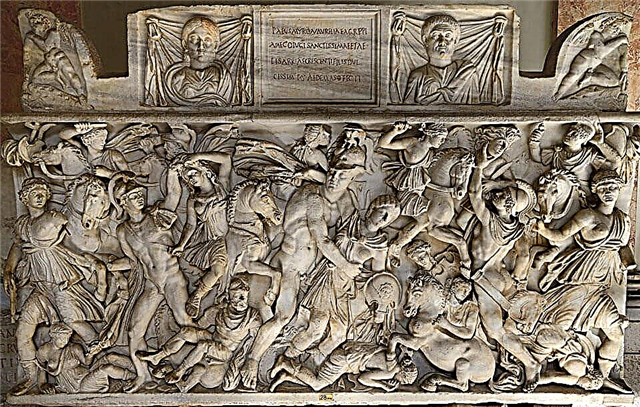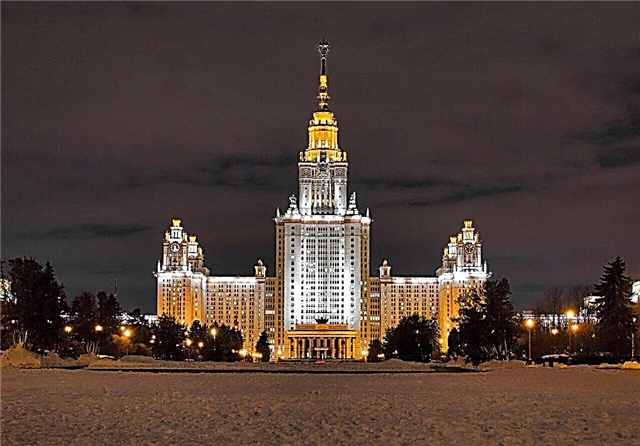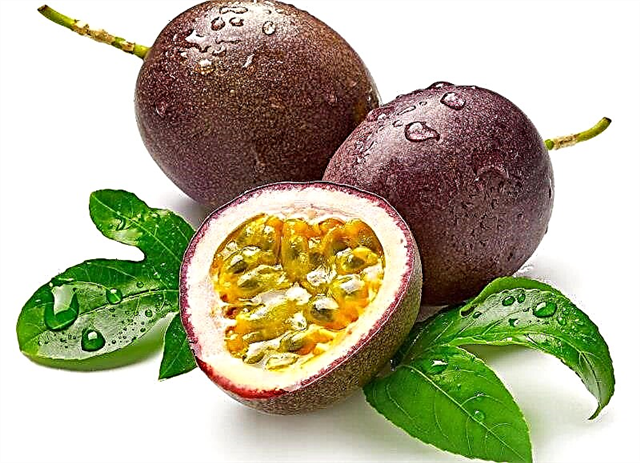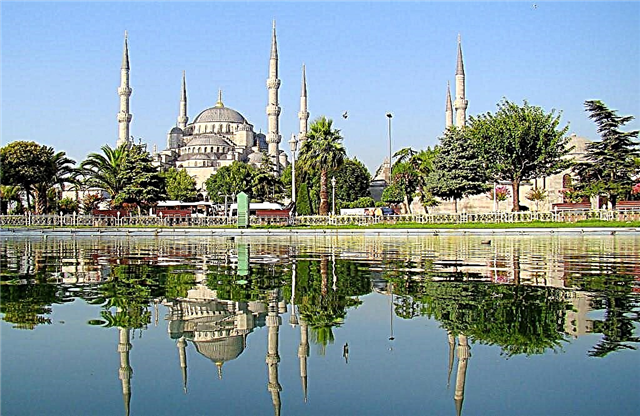The cultural and everyday traditions and customs of Turkey are very diverse, because this multinational country was formed on the basis of the powerful Ottoman Empire, which existed for more than 600 years and subjugated parts of Europe, Asia and Africa. Only on July 24, 1923, when the aggressive empire collapsed, began the formation of Turkey as a state in which, in fact, there was no Turkish nation as such.
History
The ethnic composition of the population inherited from the empire had representatives of many peoples: Kurds, Circassians, Arabs, Meskhetians, Syrians, Lazes, Balkars, Adygs. Each of them strove to preserve their religious, cultural and everyday traditions. And although now their descendants consider themselves Turks, they continue to preserve their national canons, which gave rise to the extraordinary diversity of Turkish customs.
The popular novel by the Turkish writer Güntekin “Kinglet - a songbird,” written by him in 1922, became widely known in our country in the late 80s of the last century, as did the film of the same name based on it. All strata of Turkish society, social inequality of the very rich and the very poor are reflected in the work of love; oppression and oppression of Turkish women and, of course, folk traditions.

Now everything has changed since the writing of the novel: there is no striking social contrast in society; basically, many are striving to get a good education, master foreign languages, get the prestigious profession of a doctor, lawyer, economist, journalist. The rural population is becoming more civilized and wealthy thanks to modern communications and connections. But still everyone is united by traditions and customs developed by ancestors and revered by modern descendants.
Wedding customs
Marriage is of great paramount importance here, therefore, the traditions and customs of the wedding are sacred. It is customary here to marry and get married at a fairly early age, while striving to comply with the principle of social equality: a poor man should not marry a girl from a wealthy family, so as not to infringe on her needs in the future and worsen her financial situation.
Although there are exceptions: not all modern young businessmen and politicians choose a financially secured life partner. The most common family unions within religious and ethnic groups, but also interethnic are not prohibited by law.

The family code is based on the Swiss civil code, which provides for the mutual consent of the newlyweds, the conclusion of a marriage contract and the principle of monogamy.
Wedding ceremony rituals
Family discussion is held after the decision of the guy and the girl to marry, when each of them consults with their family members, discussing all the details of the upcoming celebration.
A visit of the groom's close relatives to the bride's family to obtain consent to the marriage.

Engagement, which consists in presenting the bride with gold jewelry: rings, earrings, bracelets after cutting the red thread connecting the rings of the bride and groom into 2 parts.
Wedding preparations
Henna Night is a kind of bachelorette party held two days before the wedding, in which only women participate. The bride's traditional dress on this night should be a lilac velvet dress, she (the bride) is seated in the center of the room, a plate of henna, diluted with water is placed, where a lighted candle is placed. Those present, performing ritual songs, dance around the bride, and she weeps with her mother as a sign of sadness from the imminent separation from the parental home.
Wedding ceremony
The wedding ceremony, where 200-300 guests are invited, begins with a storm of fun, accompanied by bravura music and graceful dances. Before the end of the celebration, it is the turn of presenting gifts according to the related hierarchy: first, the closest are given, then the farthest, and so on in descending order.

The wedding night
"Gerdek" - the first wedding night - is a very important and crucial stage when the virgin purity of the bride is checked, which is still of great importance in Turkey. Until now, in the morning, the bride must demonstrate to everyone on the sheet the traces of the loss of innocence. With a mutual desire, young people can deceive the vigilance of relatives if they already had intimate intimacy before the wedding.
Traditions of etiquette
Hospitality rules

Turkish hospitality is akin to Caucasian hospitality, the Turks willingly invite guests to their place, using a special set of phrases and sentences that emphasize the desire of the hosts to see those invited. The guests who have come, traditionally placed on the floor on unfolded pillows and mats, are supposed to be offered the best and most delicious. Meals are served on a nice roomy tray, which is placed on a low table. But now, in most city houses, the feast is held according to European standards: at a large table, served with a full set of food tools.
Table etiquette
It must be remembered that pieces from a common dish should be taken only with the right hand; you can speak at the table with the permission of the owner. It is considered indecent to swallow food quickly and greedily, to be at a party for a long time, to smoke without permission; dancing and singing are encouraged. The houses of the Turks are divided into a guest and a host half, so guests can enter only their own half, taking off their shoes before entering.

In Turkish families, it is not customary to eat alone; they strictly make sure that everyone living in the same house is present at the table during meals. Turks eat a lot of greens and vegetable salads, which are served with every dish; can drink at lunch anise liqueur or beer, which are not considered alcoholic drinks for them, although they are strictly forbidden to drink in public places. Pork is never used in cooking either in home or public catering.
Common gestures

Residents of Turkey use specific gestures, sometimes understandable only to them: flicking fingers means approval; tongue click - on the contrary, disapproval or denial. Misunderstanding is expressed by a quick shake of the head from side to side or a surprised raising of the eyebrows. A sign of agreement is indicated by tilting the head to one side. When dealing with Turks, foreigners need to be more careful with their gestures, as they may be perceived by them in a completely different way.
Wearing traditions
Turkey's conservative residents, both men and women, prefer to wear traditional clothing, especially in rural areas. An obligatory attribute of Turkish national clothing is wide trousers, in which representatives of both sexes go. Men are sewn from denser fabrics, and women are made from thin transparent ones, with ornaments in the form of intricate patterns.
Over the wide trousers women wear long dresses and robes made of satin, brocade, taffeta, muslin, and men wear long shirts tucked into wide trousers. Until now, many men wear a traditional headdress - a fezu - a low cap made of red wool intertwined with a blue, black or blue cord with a tassel.
Women wear bright, beautiful scarves on top. Most business men now wear European suits, shirts and ties. Young urban women are more committed to traditional dresses, complementing them with modern accessories and footwear, while older women strictly follow the customs of national dress.

Turks are intolerant of foreign tourists who appear off the beach in too revealing clothes: short shorts, strongly low-cut tops or blouses.When going to a public place, you need to dress more modestly, choosing a dress or skirt below the knee and with a small neckline; preferably with a hat or sleek hairstyle. Visiting mosques and temples requires great caution from tourists: men should not appear there in shorts, women should wear a long dress that covers their arms and legs; and cover your head with a scarf or scarf.
Childbearing customs
All close relatives, coming to congratulate the family on the birth of a child, should give the mother gold and silver jewelry and coins. The choice of a name is also discussed by the family clan, the approved name is pronounced aloud three times, one of the grandmothers reads a prayer in the ear of the newborn in a whisper. On the fortieth day of a newborn's life, prayers for his health are also read, before bathing, the baby's body is rubbed with salt so that in the future a bad smell does not come from him.

Great importance is attached to the appearance of the first tooth in children: different objects are laid out in front of the baby and, according to what the child will take first, they make an assumption who he (she) will become.
An important stage in the formation of a boy is the circumcision rite, for which he is prepared from an early age. This is a magnificent celebration, when a boy, dressed like a king, is driven in an elegantly decorated car, accompanied by a motorcade to musical accompaniment. The boy is presented with gold coins as a sign that he has become a man that day and should have money.
Family relationships

In Turkish families, relationships are built on unquestioning submission to men. For example, younger sisters fulfill the requirements of older sisters and all brothers, regardless of their age. With mothers and children, the father enjoys indisputable authority, who retains the right to have a decisive vote. But the mother, especially the elderly one, is not offended by the attention and affection of her children and grandchildren. In general, young people in Turkey, as well as in the Caucasus, treat the older generation with deference and respect: they give way in public places and transport, stand up when old people appear. It is considered indecent to smoke, to conduct obscene conversations, if there are elderly people nearby.
Recommended reading Where are the sandy beaches in Turkey?











